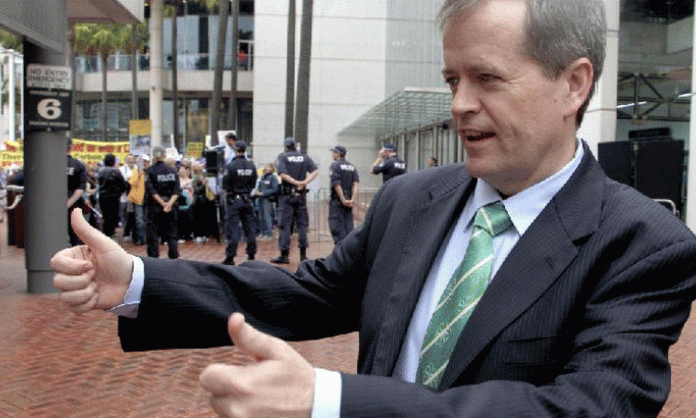I have an addition to the long list of things I don’t like about Bill Shorten. In his successful campaign for the Labor leadership, he repeatedly invoked the legacy of Gough Whitlam.
Not the Whitlam of 1972, whose government implemented a fairly sweeping agenda of social democratic reforms, but the Whitlam who took over the party leadership in 1967. Shorten says he wants to “change Labor” in the way Whitlam did back then.
What’s wrong with that, you might ask. Well, Whitlam’s reforms of that period were fundamentally about breaking the power of the unions and the left in the party.
Part of this was symbolic – a toffee-nosed lawyer calling for “modernisation” taking over from the unrepentantly working class Arthur Calwell. But the core element of Whitlam’s early period of leadership was his war to break the Victorian left and the Trade Union Defence Committee – the network of militant unions that had led the way in fighting the Groupers. Whitlam aggressively took on Jim Cairns, and then in 1970 launched the federal intervention in Victoria that broke the left’s hold over the party. Trade union influence in the Victorian branch never recovered.
Whitlam opened the way for the “whatever it takes” to get power mentality that came to define the party. At the 1967 Victorian conference, he gave a speech in which he asserted that “the party’s only legitimate raison d’etre resided in the attainment and exercise of parliamentary power”. That is the logic that gave us Rudd’s PNG “solution” (and Rudd in general).
In the late ’60s there was, at least, a left in the party that took Whitlam on. In the lead-up to the 1968 conference, left leader Bill Hartley argued that if Whitlam went on the attack against the left again, the microphone should be seized from him to prevent him continuing.
At the conference Victorian president Bill Brown made a thinly veiled attack on Whitlam, for which he received a standing ovation. Opposing “some destructive compromise”, Brown raised the fear of the party being reduced to a “pseudo-Liberal Party”. “Whatever comes and goes”, he said, “this Victorian branch of the ALP is not prepared to be sacrificed on the altar of political expediency”.
The final snub was when Arthur Calwell received warm applause for accusing Whitlam of running away from the Vietnam issue.
In the end, Whitlam won his war with the left in the party. But at least the left stood up and fought. All Albo seemed able to do was waffle on about party unity and what a great bloke he thinks Bill Shorten is.









